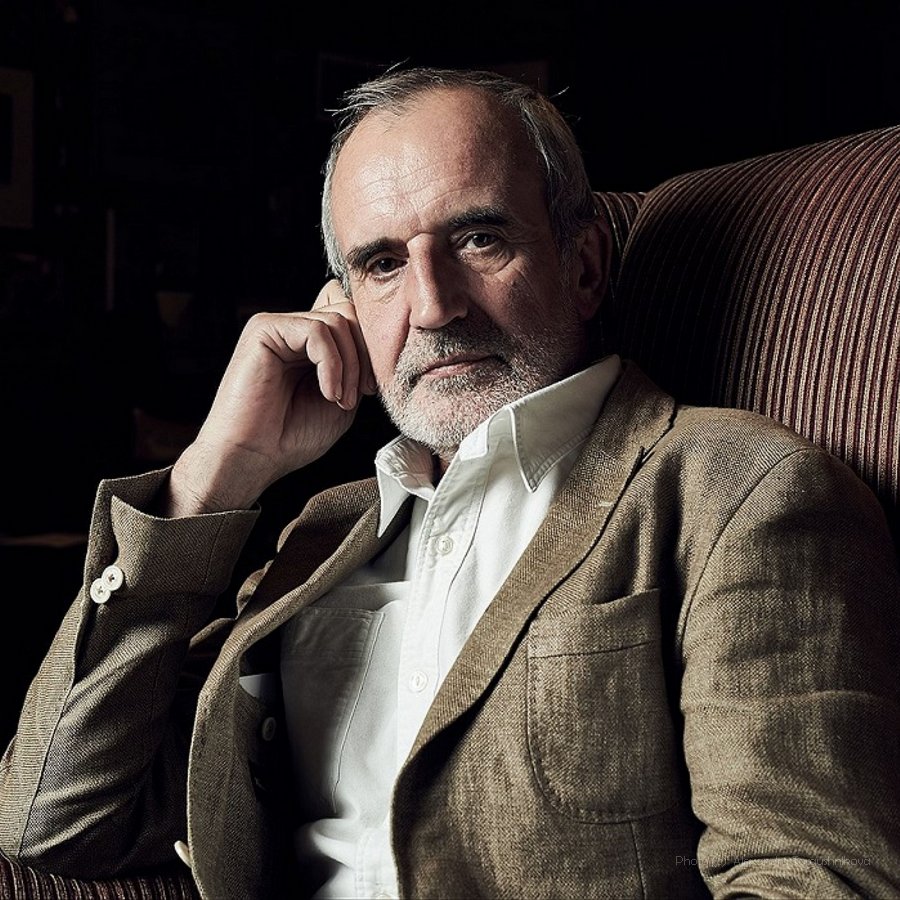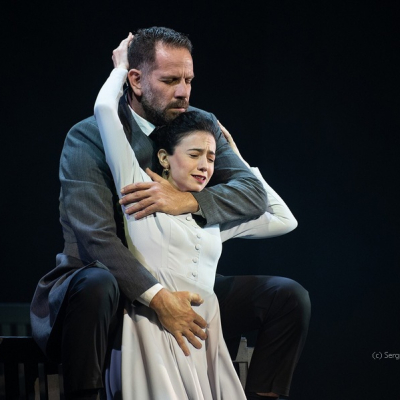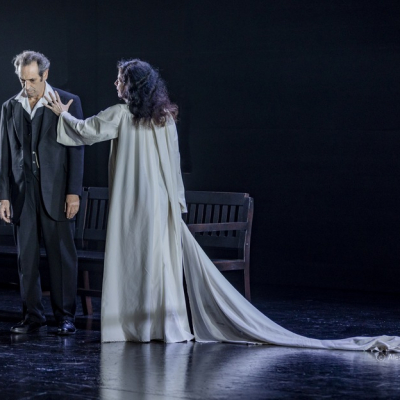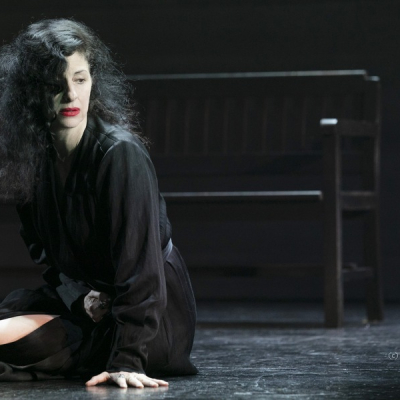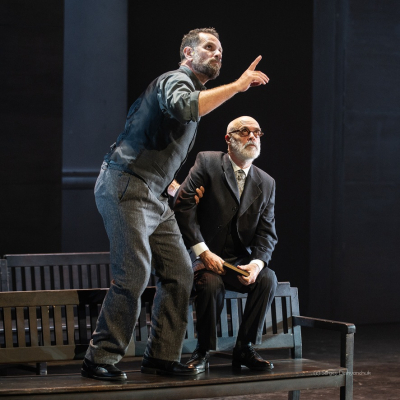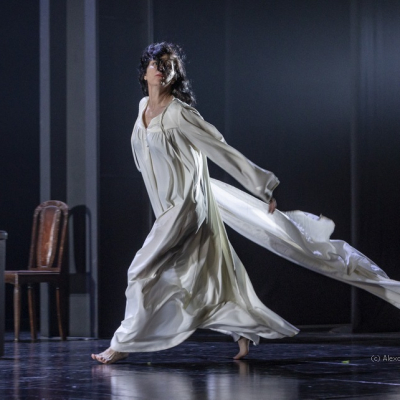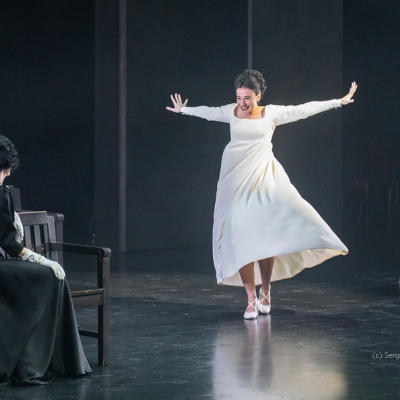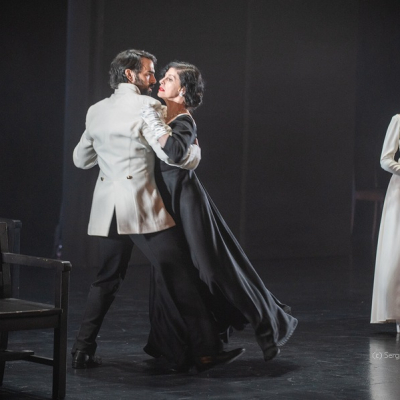Archives 2024
Anna Karenina
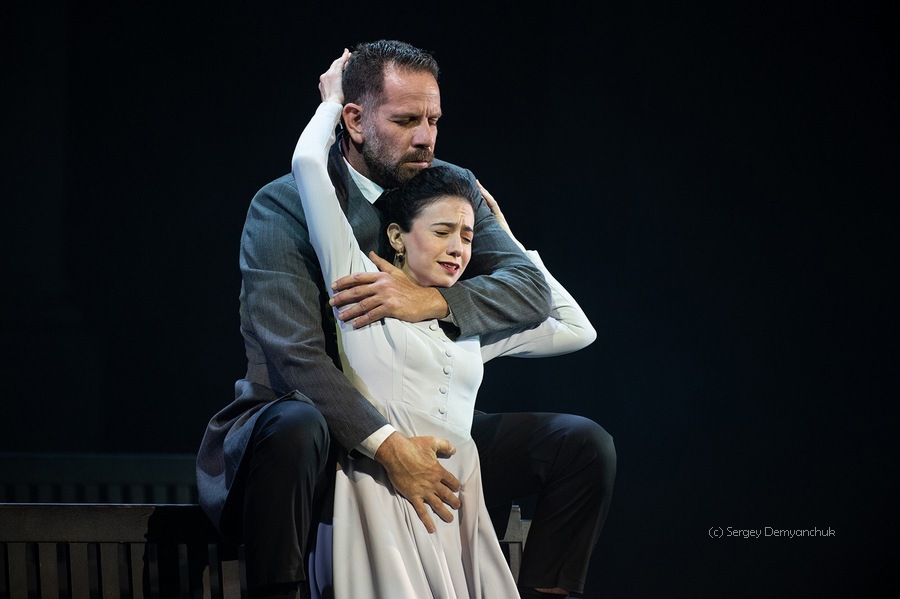
Gesher Theatre, Tel-Aviv coproduction with Les Gemeaux, Sceaux, France
Director: Rimas Tuminas
Performed in Hebrew with English and Hungarian Surtitles
2 hours 30 minutes with 1 breaks.
Tolstoy sat down to work on the book under the impression of Pushkin's prose. This is evidenced by both the testimony of Sophia Tolstoy and the author's own notes
In a letter to the literary critic Nikolai Strakhov, Tolstoy reported: "... Once after work, I took this volume of Pushkin and, as always (I think the seventh time), read it all, not being able to break away and as if reading again. But not only that, it was as if it resolved all my doubts. Not just Pushkin before, but nothing, it seems, I've never admired so much: "The Shot", "Egyptian Nights", "Captain's Daughter"!!! And there's a passage in there called "The Guests Were Going to the Dacha." I unwittingly, inadvertently, without knowing why and what would happen, conceived the faces and events, began to continue, then, of course, changed, and suddenly got tied so beautiful and cool, that came out the novel, which I now finished in draft, a very lively, hot and finished, which I am very pleased and which will be ready, if God gives health, in two weeks But two weeks later the novel was not ready - Tolstoy continued working on "Anna Karenina" for another three years.
Tolstoy was repeatedly reproached that he was too cruel to Anna, "forcing her to die under the wagon. To which the writer replied: "One day Pushkin said to his friend: "Imagine what a thing my Tatiana did. She got married. This I did not expect from her. "I could say the same about Anna. My characters do what they should do in real life, not what I want them to do".
About Gesher Theatre
Gesher Theatre
The Theatre was founded in 1991 by director Yevgeny Arye (1947-2022) and a troupe of actors from Russia, who in pursuit of artistic freedom, immigrated to Israel from Moscow. In the first ten years of its existence, the theatre served as one of the few bilingual theatres in the world, staging every play both in Hebrew and in Russian. Nowadays, Gesher Theatre performs solely in Hebrew, while still maintaining its close ties with the Russian culture and heritage.
Over the years and under Arye’s leadership as Artistic Director, the Gesher Theatre has won a place of prominence in the Israeli cultural scene as well as in the international arena. In 32 years of existence, Gesher Theatre has created more than 100 theatre productions which have won numerous awards and appeared on the world’s most prominent stages and festivals. As befits its name, which stands for “bridge” in Hebrew, Gesher Theatre sees its goal as being a source of integration in Israel multicultural society, promoting new generations of young theatre artists and presenting a repertoire composed of world classics alongside well-known texts from Jewish literature. All this while maintaining uncompromising artistic excellence along with an ongoing search for new and challenging theatrical languages.
Actors and cast:
Anna Karenina: Efrat Ben-Tzur
Aleksei Karenin, her husband: Gil Frank / Israel (Sasha) Demidov
Aleksei Vronsky, an officer: Avi Azoulay
Stiva, Anna`s brother: Alon Friedman
Dolly, his wife: Karin Seruya
Kitty, her sister: Roni Einav
Levin: Miki Leon
Sergey, his brother: Yuval Yanai / Doron Tavori
Wanderer: Nikita Goldman
Stage adaptation: Rimas Tuminas, Maria Peters
Translated to Hebrew by Roy Chen
Directed by Rimas Tuminas
Scenography: Adomas Jacovskis
Costumes: Olga Filatova
Music: Giedrius Puskunigis
Light: Alexander Sikirin
Sound: Michael Vaisburd
Dramaturgy: Katya Sassonsky
Choreography: Anželika Cholina
Director Assistant: Daria Shamina
Rimas Tuminas


